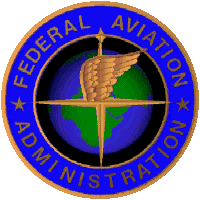Mon, Jul 14, 2003
Avidyne Leading Development Of VDL-3 Avionics To Support FAA's
NEXCOM System
 Avidyne Corporation has
successfully demonstrated the first commercial NEXCOM VDL Mode 3
radios, which will be the cornerstone of general aviation voice and
data communications for the 21st century. This was the first
simultaneous voice and data demonstration and the first flight test
of any commercial avionics VDL Mode 3 radio.
Avidyne Corporation has
successfully demonstrated the first commercial NEXCOM VDL Mode 3
radios, which will be the cornerstone of general aviation voice and
data communications for the 21st century. This was the first
simultaneous voice and data demonstration and the first flight test
of any commercial avionics VDL Mode 3 radio.
The demonstration was flown on an FAA test aircraft utilizing
the FAA's prototype ground station at the FAA technical center in
Atlantic City. All ground station modes were demonstrated during
the flight including urgent downlink request, next channel uplink,
controller override, and digital voice using 2V2D mode.
 Prior to the flight test, extensive
formal lab and aircraft ground tests successfully exercised all
data and voice modes, including simultaneous voice and data with
multiple Avidyne radios communicating with the FAA's prototype
ground station. This included the 3V long-range voice modes,
exercising the full 200-mile range capability of VDL Mode 3.
Prior to the flight test, extensive
formal lab and aircraft ground tests successfully exercised all
data and voice modes, including simultaneous voice and data with
multiple Avidyne radios communicating with the FAA's prototype
ground station. This included the 3V long-range voice modes,
exercising the full 200-mile range capability of VDL Mode 3.
"Avidyne was founded to develop revolutionary, low-cost avionics
systems, and we are pleased to be the lead developer of NEXCOM
systems for general aviation," said Avidyne president Dan Schwinn.
"This marks a major milestone for our industry, demonstrating the
viability and availability of commercial avionics to meet the
aviation communication needs for the next 50+ years."
 Avidyne's self contained panel
mounted radio was designed to meet the future communication needs
for the general aviation market at a reasonable cost, with
specifications at least equal to air transport class radios.
Avidyne's self contained panel
mounted radio was designed to meet the future communication needs
for the general aviation market at a reasonable cost, with
specifications at least equal to air transport class radios.
Avidyne previously completed a formal demonstration
of digital voice with the FAA's ground station in March 2003.
NEXCOM?
NEXCOM is the FAA's radio system of the 21st century. It is an
analog/digital system incorporating the latest technological
advances in radio communications. NEXCOM will provide capability to
accommodate additional sectors and services; reduce logistical
costs; replace expensive to maintain VHF and UHF radios; provide
data link communications capability; reduce A/G RF Interference and
provide security mechanisms. When completed over 46,000 radios will
be installed throughout the FAA system. The NEXCOM system will
enhance the FAA's ability to meet expanding air traffic control
communication demands.
More News
From 2023 (YouTube Edition): "Ain’t Your Daddy’s Super Cub”—Don Wade Co-owned by Don and Ron Wade—the former of Don’s Dream Machines, a storied >[...]
Pilot-Rated Passenger Reported That The Pilot Did Not Adequately “Round Out” The Landing Flare And The Airplane Bounced And Yawed To The Right Analysis: The pilot state>[...]
Dead Reckoning Dead reckoning, as applied to flying, is the navigation of an airplane solely by means of computations based on airspeed, course, heading, wind direction, and speed,>[...]
Aero Linx: Lake Amphibian Club This website is created and sponsored by the Lake Amphibian Club, to help spread the word about these wonderful, versatile amphibians that can land j>[...]
“I am deeply honored to be sworn in as NASA administrator. NASA’s mission is as imperative and urgent as ever — to push the boundaries of human exploration, ignit>[...]
 Classic Aero-TV: In Praise of Alabamas Patriot Aircraft USA
Classic Aero-TV: In Praise of Alabamas Patriot Aircraft USA NTSB Final Report: Cirrus Design Corp SR22
NTSB Final Report: Cirrus Design Corp SR22 ANN's Daily Aero-Term (12.21.25): Dead Reckoning
ANN's Daily Aero-Term (12.21.25): Dead Reckoning ANN's Daily Aero-Linx (12.21.25)
ANN's Daily Aero-Linx (12.21.25) Aero-News: Quote of the Day (12.21.25)
Aero-News: Quote of the Day (12.21.25)





